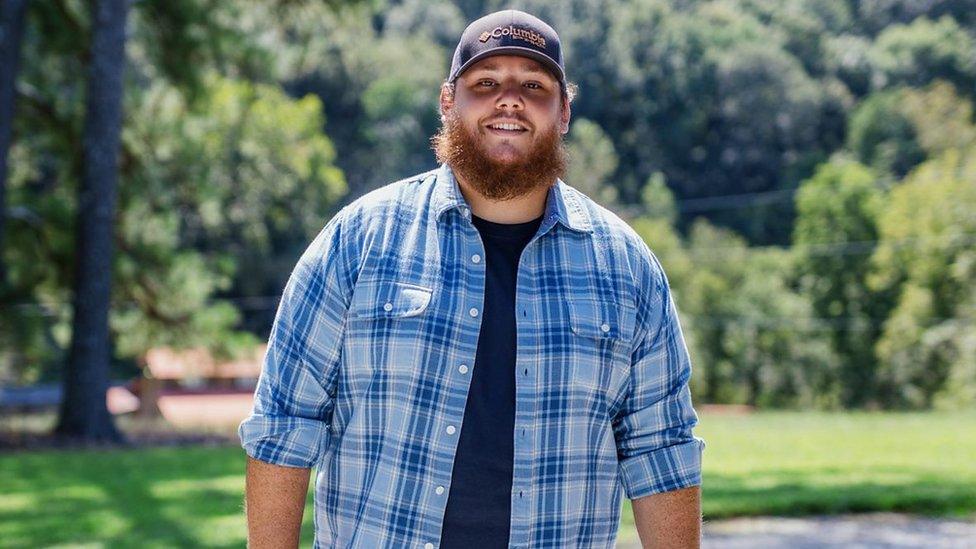Beyoncé: Star 'can open UK country music floodgates'
- Published
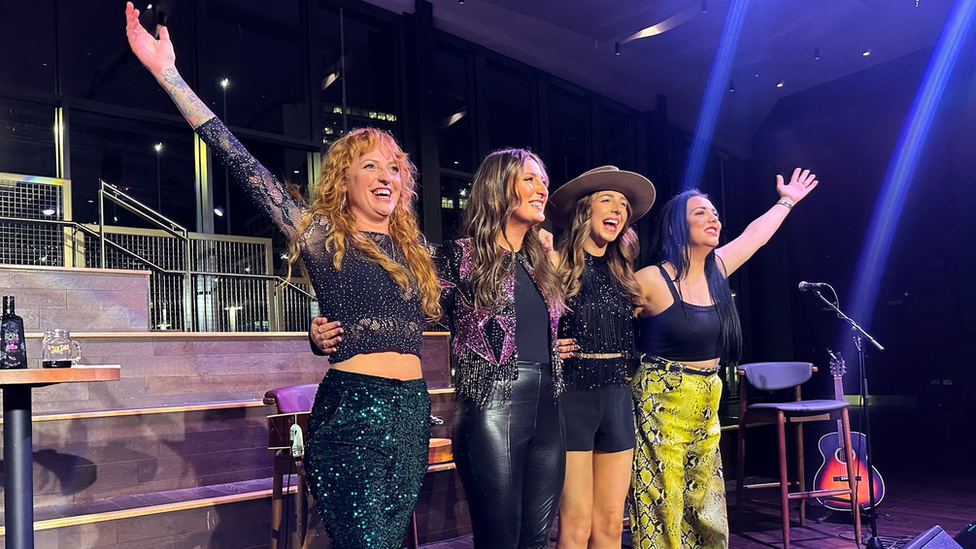
Kezia, Jess, Demi and Jade (left to right) are all individual country music artists who've come together to perform
"Okay, they ready. Drop the new music."
As millions tuned in to the Super Bowl to watch a win for the Kansas City Chiefs, Usher on roller skates and the latest chapter of the Taylor Swift-Travis Kelce love story, it was this announcement from Beyoncé which got the BeyHive buzzing.
The second part of her Renaissance project is on the way and she dropped two singles immediately giving clues as to its direction.
Texas Hold 'Em and 16 Carriages are both country songs, suggesting the whole album, which is out next month, will be country too - a first for Beyoncé.
The genre "has a bit of a stereotype that it's all line dancing and cowboys," UK country artist Kezia Gill tells BBC Newsbeat.
But if anyone can change that, it's got to be someone with as much star power as Beyoncé, she thinks.
"Massive artists like Beyoncé bringing out country music, it's just going to open the floodgates for us," Kezia says.
The singer from Derby feels Beyoncé's presence can make the genre "accessible to everyone".
"I think what's really funny is so many people are going to listen and think Beyoncé just invented this whole thing.
"But if that can bring in a whole generation, then it's going to be amazing."
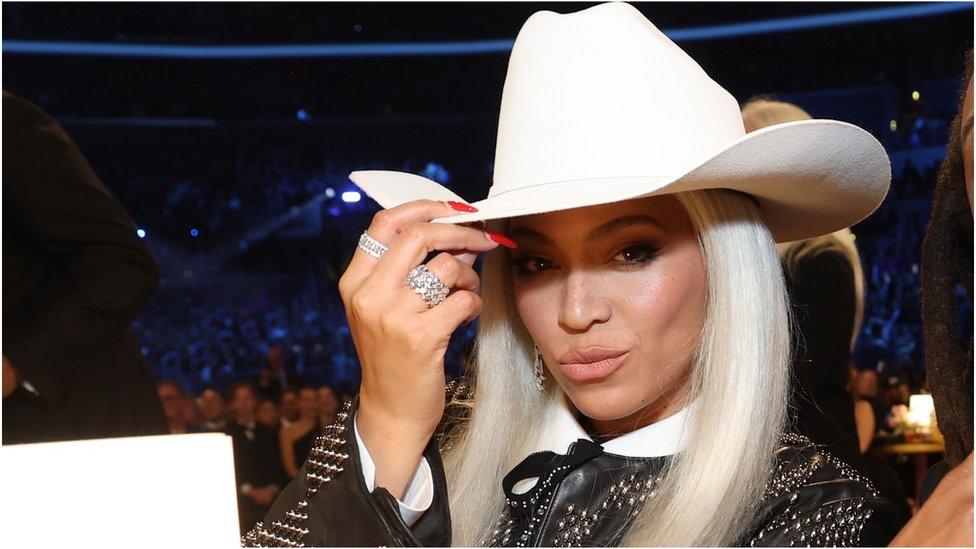
Beyoncé wore a white cowboy hat to the 2024 Grammys, possibly hinting at the new musical direction
Beyoncé's announcement comes soon after Lana Del Rey confirmed her first country album, Lasso, was in the works earlier in February.
Another UK-based artist, Jess Thristan, feels prominent female artists releasing country music is key to growing the genre, particularly for women hoping to break through.
Taylor Swift's 2008 country pop album Fearless has been credited, external with making the genre more relatable to younger people.
Her re-recorded version, Fearless (Taylor's Version), is currently number one in the UK's Official Country Artists Albums Chart, but generally Jess feels the genre's "very stereotypically male-dominated".
"In the UK, we have an incredible roster of [upcoming] female country artists.
"I think we're trying to break that stereotype and mould of traditional male country artists and show everyone what the women are doing.
"If there's anyone out there that's listening to Beyoncé and Lana's new songs, thinking 'this has unlocked something in me', then get down to a country show in the UK," Jess, from Halifax, says.
'The dream is acceptance'
Roisin O'Connor, music editor at The Independent, thinks Beyoncé's new music could be "a tipping point" for country music.
"Given Beyoncé's status as one of the biggest artists on the planet, this could fully engage the UK in country," she says.
"I guess you could say it's a final frontier. It's probably the one genre that the UK hasn't quite grasped yet.
"There are plenty of country music fans in the UK, but I think in terms of radio play, it's not something you tend to hear as much."
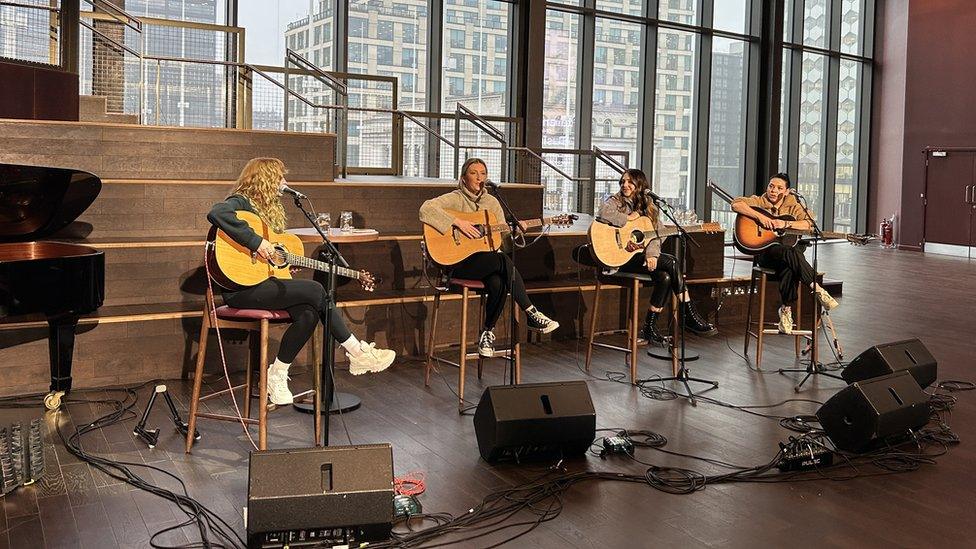
Jess feels it's "incredibly important" for aspiring female artists to see Lana Del Rey, Taylor Swift and Beyoncé release songs
Roisin feels country music has had issues with being "quite insular".
Since the release of Beyoncé's new songs, a radio station in Oklahoma originally refused to play the tunes - a decision which has since been reversed.
And it's not the first time the US singer has released a country song which has faced resistance.
Daddy Lessons from her 2016 album Lemonade was put forward for the country category at the Grammys but ended up being rejected by the Recording Academy.
"The industry's had historic problems with failing to welcome or acknowledge black artists," Roisin says.
"It has also had a bit of a problem with women and stereotyping what a female country artist should be.
"For me, this is Beyoncé throwing down her claim. She grew up in one of the heartlands of country music [Houston, Texas], so has as much right as anyone to make a country album."
Kezia feels "the ultimate dream is acceptance of this genre" in the UK.
"Because there's a horrible habit of people saying 'country and UK country,'" she says.
"It's not UK country. There's no UK pop, UK jazz. It's just jazz and pop, and it's just country."
And as for those stereotypes of line dancing and cowboys, it's not that at all, she says. "It's storytelling."
"I think acceptance is allowing us to play [festivals] and not be on a country stage... to just be on the main stages," she says.


- Published15 February 2024
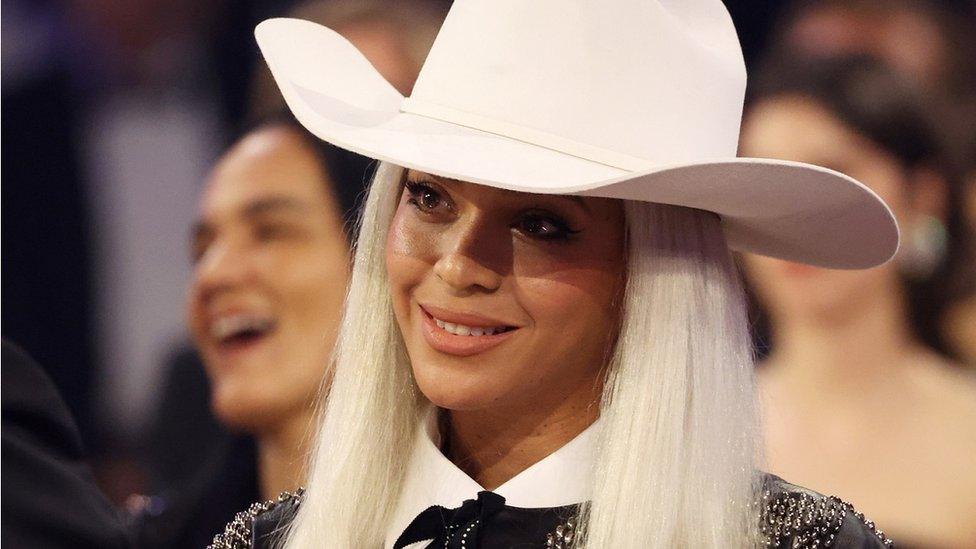
- Published12 February 2024
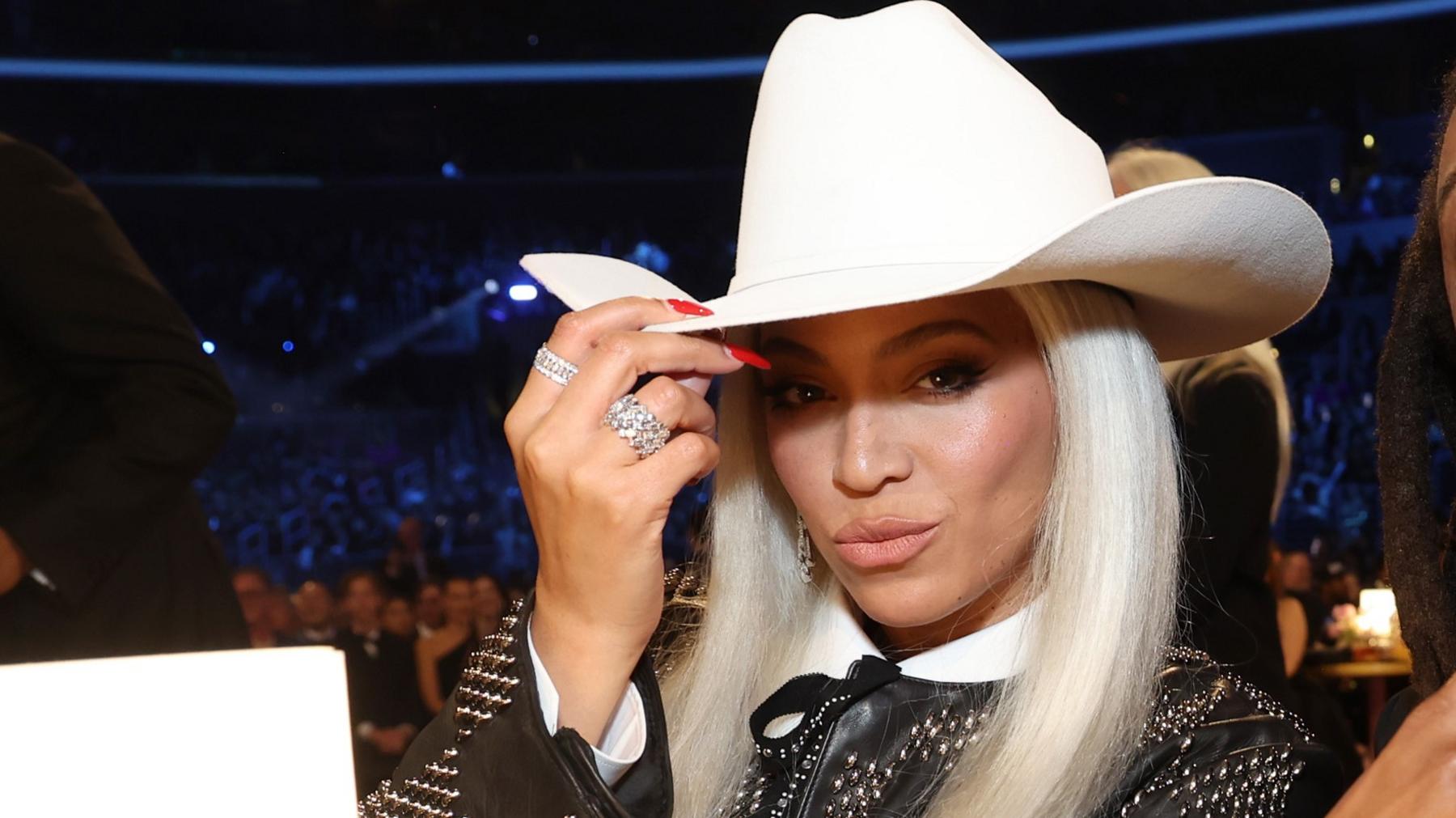
- Published13 February 2024
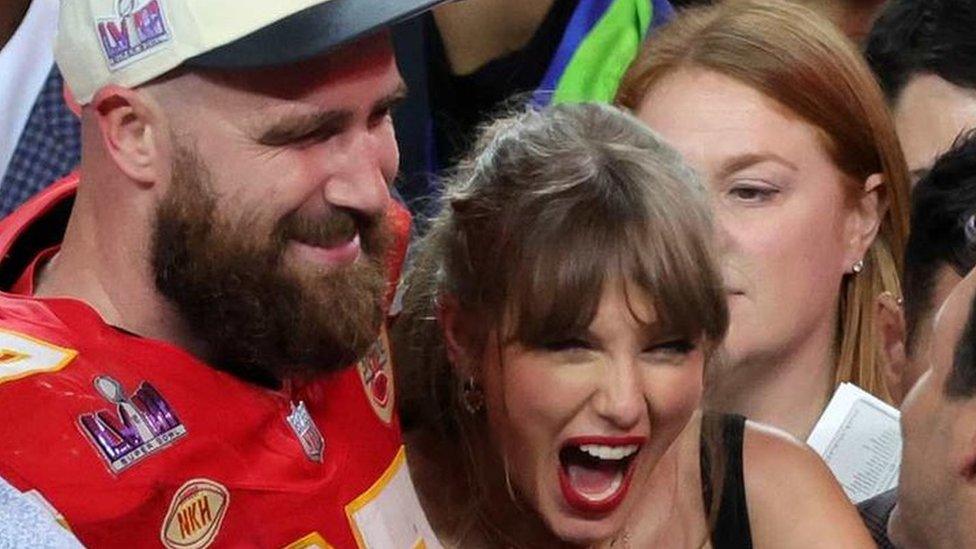
- Published27 May 2021
